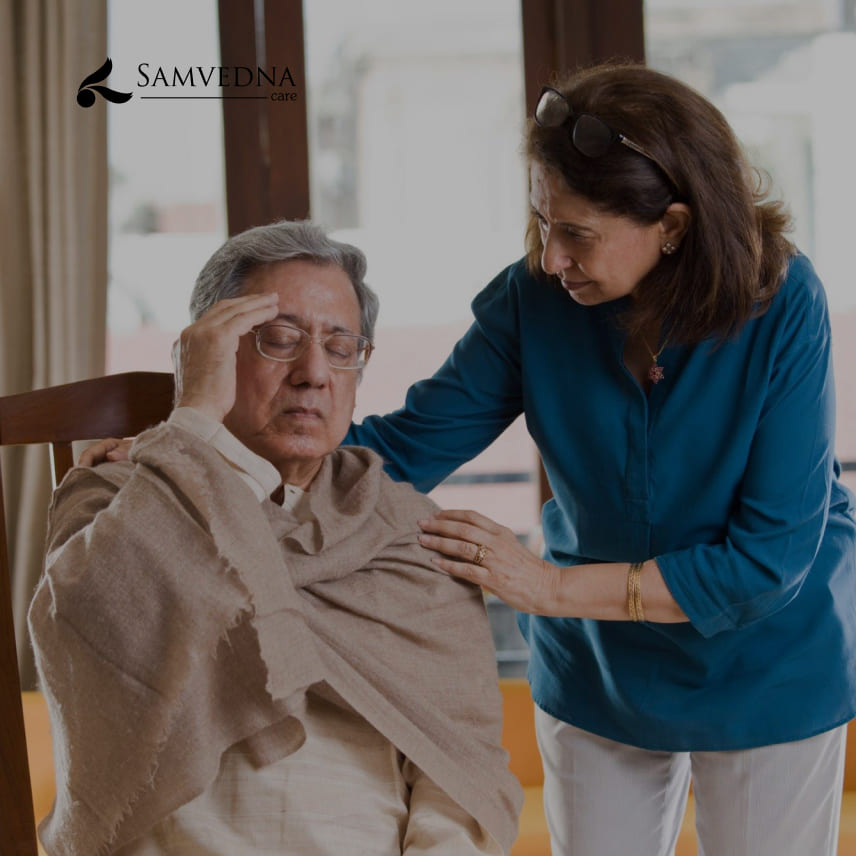Contact Us




In India, there are around 700,000 people who are currently living with Parkinson’s disease. Globally, the number of people affected by Parkinson’s is approximately 8.5 million, with more males than females. Parkinson’s disease is a disorder that affects the nervous system and causes unintended movements, such as shaking, stiffness, and difficulty with balance and coordination. It is a progressive condition, which means that it worsens over time as parts of the brain deteriorate.
If you or your loved one has been diagnosed with Parkinson’s disease, you might want to understand what symptoms are associated with the disease. For a diagnosis, physicians look out for the classic clinical triad of Parkinson’s Disease, which includes:
Parkinson’s disease is known as a movement disorder since it primarily affects movement. However, Parkinson’s disease affects other systems in the body too, leading to non-motor symptoms such as constipation, decreased sense of smell, confusion, sleep disturbances, mood swings and mood disorders such as anxiety, depression etc. It is essential to understand the symptoms and seek appropriate care. Samvedna elder home care services provides specialized care for individuals living with Parkinson’s disease to maintain their independence and quality of life while managing the challenges of this condition.
What Early Warning Signs You Should Look Out For In Parkinson’s Disease
In Parkinson’s disease, non-motor symptoms typically appear first, and can precede the motor symptoms by approximately 5-20 years. These symptoms may be present in the prodromal phase, i.e., the early stages of a disease, but they are not sufficient for a diagnosis of Parkinson’s disease. Parkinson’s has 2 types of symptoms, Motor symptoms and Non-motor symptoms. Motor symptoms affect movement and non-motor symptoms are those that are not related to movement. Some early warning signs of Parkinson’s disease are:
Motor Symptoms – TRAP
Non-Motor Symptoms:
There can also be changes that can be observed by others, such as stooped or hunched posture while standing, lack of facial expressions. Changes may also be observed in their gait. While walking, they may drag their feet on the floor, which is also known as shuffling gait. Samvedna elder care services supports the caregivers to understand the symptoms and manage the symptoms.
Progression of Parkinson’s Disease
The beginning of Parkinson’s can be gradual and the individual may not even notice the changes occurring.
As the disease progresses, tremors and rigidity may increase, the individual may start having speech abnormalities and impaired balance. It may become difficult to make rapid movements and slowly walking and standing without assistance may become difficult and they would need support in their activities of daily living.
Challenges of a Parkinson’s Patient
Parkinson’s disease can present numerous challenges for patients, including physical, emotional, and social difficulties. The physical symptoms of Parkinson’s, such as tremors, stiffness, and slow movements, can make it difficult to perform daily tasks and impact independence. This can be frustrating and limit a person’s ability to engage in social activities, leading to isolation and feelings of loneliness.
The emotional impact of Parkinson’s should not be overlooked. Many patients experience anxiety, depression, and other mood disorders, which can further impact their quality of life. Parkinson’s can also cause cognitive changes, affecting memory, attention, and decision-making abilities. This can make it challenging to maintain social connections and engage in activities that once brought pleasure.
Caregivers of Parkinson’s patients also face their own set of challenges. They may experience caregiver burden, which can lead to physical, emotional, and financial strain. Caregivers must balance providing support and care while maintaining their own well-being.
Overall, Parkinson’s disease can present a range of challenges for patients and caregivers. It is essential to work closely with healthcare providers to manage symptoms and maintain quality of life. Seeking support from family, friends, and community resources can also be beneficial in navigating the caregiver burden. Samvedna Care’s elder home care services provides a specialized support to the individual living with Parkinson’s disease and the caregiver. Our trained and compassionate caregiver provide personalised care and support including assistance with daily tasks, medication management and emotional support. Samvedna Care also offer physiotherapy and cognitive stimulation therapy to address the unique needs of the individual.
How to Care for Someone With Parkinson’s Disease
As a caregiver for someone with Parkinson’s disease, it is essential to provide support and care that meets their unique needs. Here are some tips to help you care for someone with Parkinson’s disease:
By following these tips and working closely with Samvedna elder care services, you can provide the best care and support for your loved one with Parkinson’s disease.
If your loved one is diagnosed with Parkinson’s, contact Samvedna Care for information on support and treatment facilities available at the Centre.
For more resources, check Samvedna Care’s website.